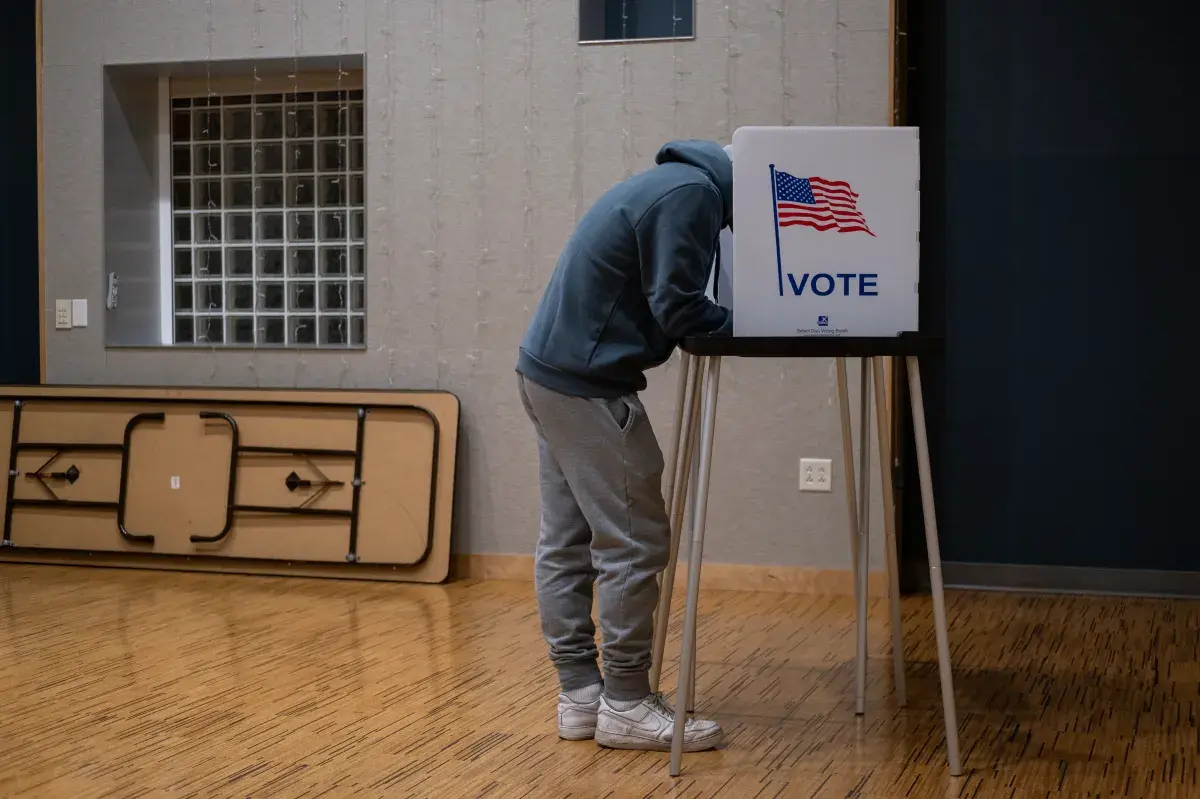Copyright Tom's Guide

Melatonin is a hormone we naturally produce and levels of it increase at night to help us feel sleepy and rest well over the course of the night. However, according to a Sleep Foundation 2022 survey, 24.7% of adults take melatonin supplements to aid sleep. If you've experienced insomnia, it's possible you've tried the supplements as a way to fall asleep faster and help avoid waking up through the night. But while they may help you snooze, new research indicates there could be a cost when it comes to other aspects of your health. A recent preliminary study has found that long-term use of melatonin supplements by people with insomnia is linked to a higher risk of heart failure, along with several other worrying health outcomes. We've spoken to Dr. Fady Hannah-Shmouni, MD FRCPC, Medical Director at Eli Health and board-certified integrative physician Jacob Teitelbaum MD to explore the study findings in more detail, and provide some suggestions for ways to fall asleep fast without resorting to melatonin supplements. Key takeaways Researchers examined five years of health data for 130,828 adults with insomnia, half of whom used melatonin for a year, while the other half had never been prescribed it Those using melatonin supplements long-term had around a 90% higher chance of heart failure over five years Those using melatonin supplements had an increased chance of being hospitalized for heart failure and of dying of any cause The new preliminary study, set to be presented at the American Heart Association’s Scientific Sessions 2025, has found associations between the use of melatonin supplements and serious health problems. The study looked at international database health records of 130,828 adults, of whom half (65,414) had been diagnosed with insomnia, received a prescription for melatonin supplements at least once and reported use of it for at least a year. The researchers then created a control 'non-melatonin' group by matching these people with others on the database who had been diagnosed with insomnia but had no record of using melatonin supplements, leaving out anyone who had been prescribed other sleep medications or already had a heart failure diagnosis. They then looked at each group's health records for five years from the matching date. Results showed that those who used melatonin supplements long-term, which they classified as a year or more, had a 4.6% chance of heart failure over 5 years, compared with the control group who only had a 2.7% chance — the melatonin supplement users had a 90% higher chance of heart failure than the non-melatonin group. They also found that the melatonin group had a 3.5 times higher chance of being hospitalized for heart failure, compared to the non-melatonin group. And they discovered worrying indications for mortality overall. Compared with the 'non melatonin' study participants, those taking melatonin were twice as likely to die from any cause, over the five year period. However, the researchers noted that their results don't prove that melatonin supplements directly cause these health issues. Should you be worried by what the study found? Those who use melatonin supplements, particularly long-term for insomnia, might be feeling concerned, so we asked the experts for their thoughts on this new research. "I wouldn't panic just yet, and here’s why," says Dr. Shmouni. "Importantly, this is an association (or correlation), not a causation," he explains, adding that "we see people jump to conclusions whenever there is a correlation between two things, but it doesn’t mean one causes the other — that is not a conclusion we can draw from this initial report." "It looked at people who were already struggling with insomnia, which means there is already an underlying reason they're not sleeping well (potentially something cardiac-related). This potential third factor could be causing both the use of melatonin long-term (to get to sleep) and heart issues," he says. Dr. Shmouni also explains that insomnia itself "can lead to changes in the hormones that are involved in our stress response, like cortisol (the body’s primary stress hormone) as well as inflammation and changes in cardiac health." Dr. Teitelbaum also notes that the sleep disorder "has been shown to be related to a dramatically increased risk of heart disease." One of the limitations of the study was that the researchers didn't have information on the severity of the insomnia in any of the participants. Another was that the study defined melatonin use by medical records of prescriptions, but it included participants from countries where melatonin supplements must be prescribed, and those where they're are available over-the-counter. So it's possible that the 'non-melatonin' group included people taking non-prescription melatonin supplements. Though the study isn't a definitive link between melatonin supplements and these issues, Dr. Shmouni notes that overall it's important to always talk to your doctor before introducing any new supplement, and follow their dosage guidance. How to fall asleep fast without melatonin supplements "I wouldn’t panic if you take melatonin from time to time, but if you’re looking for an alternative, there are a few things you can do to make sure you’re setting your body up for proper rest," says Dr. Shmouni. Read on for some tips to fall asleep faster... 1. Keep your sleep schedule consistent If your bedtime is 10pm one night, 2am the next and 11.30pm the night after that, you're likely confusing your circadian rhythm (also known as the internal body clock), which relies on steady cues to stay regulated. Sticking to the same sleep and wake times throughout the week helps your body clock stay on track, which results in the release of the hormones you need to sleep (melatonin) at night and feel bright, alert and in a good mood (cortisol and serotonin) in the morning at the correct times. It's a piece of advice that we at Tom's Guide mention time and time again, and though it means maintaining your sleep schedule on weekends too (sorry!), the outcome is likely to be falling asleep with more ease. 2. Practice a nighttime routine If you're feeling stressed or tense before bedtime, it's likely to contribute to trouble falling asleep. "Stress activates the adrenaline part of our nervous system. Difficulty shifting from the adrenaline part of our nervous system to the relaxation part is a key player," says Dr. Teitelbaum. To counteract this he suggests that, "having a bedtime routine, just as you would for your children, is very helpful. This signals to your body that it’s time to sleep." He recommends spending the hour before bedtime on calming and enjoyable activities, and his suggestions for those include taking a bath with Epsom salts (which can help relax muscles), and drinking chamomile tea made from loose tea as "chamomile supports sleep initiation." "Reading or watching something familiar and lighthearted also switches people out of the adrenaline and into the calming parasympathetic mode," he adds. However, Dr. Teitelbaum advises taking precautions if you include screens in your nighttime routine: "Just be sure to switch to night mode on your phone or Kindle (on the Kindle, this is called the 'warmth' light setting). Night mode avoids the blue wavelengths of light, which powerfully trigger adrenaline release (and is why sleep masks help)." 3. Try relaxation exercises Dr. Shmouni recommends a pre-bedtime relaxation exercise if you're looking to fall asleep faster, and there are plenty of options to choose from, including deep breathing, yoga, progressive muscle relaxation, or meditation. "These techniques can help lower cortisol and restore mental balance, helping clear space for calmer, quieter thoughts," he explains. Sleep meditations, for example, are any form of meditation you practice before bed to help ease you to sleep. Some, like body scan meditation can be self-guided, or you can try a guided meditation (there are plenty of free videos on platforms like YouTube). Visualization is another meditation technique that uses focusing on calming imagery to help relax you and therefore, fall asleep more easily. 4. Stay physically active "Movement can help burn off momentary stress, while also helping your body better regulate your cortisol levels over time. It has also been shown to improve sleep outcomes," says Dr. Shmouni. However, he advises being careful about the timing of strenuous exercise: "I recommend doing your higher-intensity workouts earlier in the day, so your body can properly recover before bedtime." One study found that afternoon exercise led to increased sleep efficiency, REM sleep and total sleep time, however evening exercise saw higher sleep onset latency (the time it takes to fall asleep), nighttime awakenings, and both deep and REM sleep latency (the time it takes to move into these all important sleep stages). 5. Create the ideal sleep environment "Practicing good sleep hygiene is vital for a solid night of rest," says Dr. Shmouni, who recommends "making sure your sleeping setting is cool, dark, and quiet." To achieve this he suggests "blocking out sounds (with ear plugs or white noise) and light (with tech-safe stickers, an eye mask, or shades), while making sure your space isn’t too hot." In the evening our body temperature naturally drops by 1-2°F, which helps induce melatonin production, helping us feel sleepy. Maintaining a bedroom temperature of between 65 to 70°F (18 to 21°C) is ideal for sleep, according to a 2020 study. Taking these steps is important to help you fall asleep and, as Dr. Shmouni explains, light, noise, and stuffy conditions "can wake you up, interrupting your sleep. If that’s happening night after night, your rest quality and quantity will suffer."



